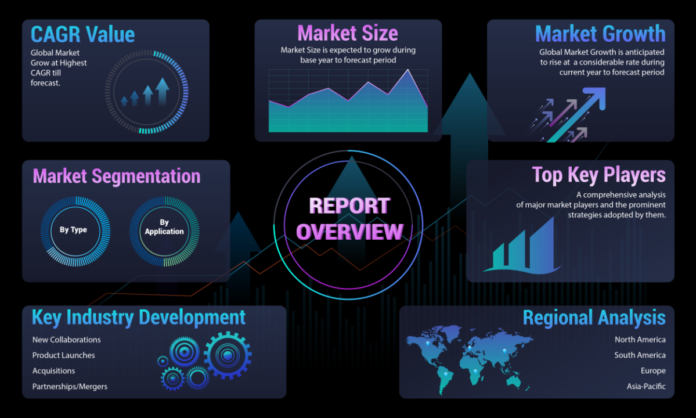The evolving landscape of various industries is influenced by technological advances, economic shifts, and societal needs. As we move into Global Industry Trends 2024, specific trends are emerging across sectors such as renewable energy, construction, and healthcare. This article explores these developments, offering a detailed overview of the forces shaping industries and their potential impact on businesses and consumers alike.
The Energy Sector’s Renewable Revolution
The energy industry is experiencing a profound transformation as renewable energy gains momentum. The US Energy Information Administration (EIA) predicts a significant increase in solar power capacity, with utility-scale solar installations expected to reach 36 gigawatts (GW) in 2024, up from 24 GW in 2023. Additionally, battery storage capacity is projected to nearly double to 32 GW, enhancing grid flexibility and addressing the variability of renewable energy sources.

This shift is driven by the increasing adoption of electric vehicles (EVs) and the electrification of transportation, buildings, and industrial processes. By 2024, EV sales are anticipated to surpass one million annually, bolstered by cost parity with traditional vehicles and expanded charging infrastructure. These trends signal a pivotal moment for the renewable energy sector, as it aims to meet growing electricity demand while reducing carbon footprints.
Innovations in Construction and Engineering
The construction and engineering (C&E) industry is grappling with material cost fluctuations and labor shortages. Prices for essential materials like steel and lumber remain elevated compared to pre-pandemic levels, influencing project budgets and timelines. Construction equipment costs have risen by 26% since 2020, necessitating strategic procurement and cost management practices.
Labor shortages continue to challenge the sector, with 350,000 job openings reported in 2023. To address this gap, firms are investing in workforce development initiatives, such as upskilling programs and competitive compensation packages. The adoption of modular and prefabricated construction methods is also gaining traction, offering cost efficiencies and reduced project durations.
Healthcare: The Digital Transformation
Healthcare is undergoing a digital transformation, driven by advancements in telemedicine, artificial intelligence (AI), and wearable technologies. The COVID-19 pandemic accelerated the adoption of telehealth services, which remain integral to patient care. AI applications in diagnostics and treatment planning are streamlining workflows, reducing costs, and improving patient outcomes.
Wearable devices are enabling remote patient monitoring, empowering individuals to take a proactive role in their health management. As healthcare systems embrace these innovations, they face challenges such as data security, interoperability, and regulatory compliance. Overcoming these obstacles will be key to fully realizing the potential of digital healthcare solutions.
The Role of Artificial Intelligence Across Industries
AI is revolutionizing industries by automating processes, enhancing decision-making, and unlocking new business models. In the energy sector, generative AI is being explored to optimize grid management and address rising costs. The construction industry is leveraging AI to improve project planning, manage supply chains, and enhance safety on job sites.
AI’s impact extends to healthcare, where machine learning algorithms analyze vast datasets to identify patterns and predict outcomes. In finance, AI-powered tools are reshaping customer experiences through personalized recommendations and fraud detection mechanisms. As industries continue to adopt AI, ethical considerations and workforce adaptation will remain crucial.
Adapting to Workforce Challenges
Industries worldwide are confronting workforce challenges, including talent shortages and changing work dynamics. The C&E sector, for example, is addressing a retiring and aging workforce by extending outreach to high school graduates, community colleges, and veterans. Embracing the gig economy and fostering diverse talent pipelines are becoming essential strategies for attracting skilled workers.
Similarly, the healthcare industry faces a growing demand for professionals to support digital health initiatives. Training programs focused on emerging technologies and interdisciplinary skills are vital to building a resilient workforce capable of navigating the complexities of modern healthcare.
Sustainability as a Strategic Imperative: Global Industry Trends 2024
Sustainability remains a top priority across industries, influencing corporate strategies and consumer behaviors. In the energy sector, investments in renewable energy and carbon capture technologies are advancing sustainability goals. The construction industry is adopting green building practices, such as energy-efficient designs and sustainable materials, to reduce environmental impact.
Consumers are increasingly demanding eco-friendly products and services, prompting businesses to prioritize sustainability in their operations. Transparency and accountability in sustainability efforts are essential for building trust and maintaining a competitive edge.
Leveraging Digital Platforms for Industry Insights
As industries evolve, staying informed is critical for businesses and professionals. Digital platforms like Zyneph’s blog provide valuable insights into technological advancements and market trends. Collaborating with platforms such as ScopeTrends and MagForums can help organizations gain a deeper understanding of emerging opportunities.
In addition to industry-specific platforms, tools like Cybozap and resources on TopSearchz offer comprehensive solutions for navigating complex challenges. By leveraging these resources, businesses can make informed decisions and adapt to changing market dynamics.

